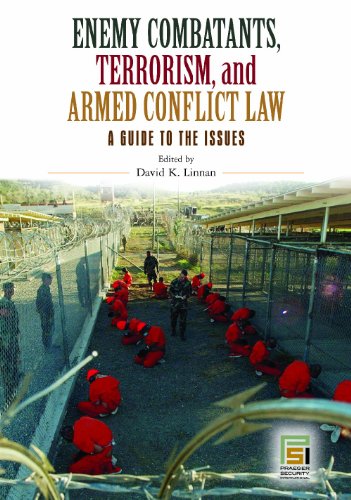

Most ebook files are in PDF format, so you can easily read them using various software such as Foxit Reader or directly on the Google Chrome browser.
Some ebook files are released by publishers in other formats such as .awz, .mobi, .epub, .fb2, etc. You may need to install specific software to read these formats on mobile/PC, such as Calibre.
Please read the tutorial at this link: https://ebookbell.com/faq
We offer FREE conversion to the popular formats you request; however, this may take some time. Therefore, right after payment, please email us, and we will try to provide the service as quickly as possible.
For some exceptional file formats or broken links (if any), please refrain from opening any disputes. Instead, email us first, and we will try to assist within a maximum of 6 hours.
EbookBell Team

0.0
0 reviewsWith a renewed emphasis on national and homeland security, the United States is once again seeking to balance the needs of the state with both the rights of its citizens as well as those of other nations. This book represents an interdisciplinary approach to the legal dilemmas borne out by the war on terror-against the specific background of Afghanistan, Iraq, and this new kind of conflict. It is a strong contribution to a broader debate visible since 9/11, which will remain in the public eye for the foreseeable future. It addresses the overlap between religion, ethics, armed conflict, and law, within the context of the current conflict. While many issues in areas such as intelligence, reconciliation of civil liberties, dealing with terrorist threats, and the permissible bounds of interrogation, treatment of prisoners and laws governing armed conflict have long standing precedents under domestic and international law, this war has challenged even long standing legal interpretations. The contributors to this volume explore those precedents and contemporary challenges to them.
Now that traditional wars between nation states are no longer the rule, the terrorist threat has gained credence (popularly, terrorism and its claimed breeding ground in failed states), linked in practice to issues of intervention on the territory of states harboring such groups. In military circles the idea of armed struggle between modern military forces and what were formerly called guerillas has now largely been replaced by asymmetric warfare and the concept of intelligence and preventive action interchangeably within U.S. borders and overseas. Opposing views contemplate that different-and presumably lower-legal standards may apply in internal armed conflicts. Such legal issues are visible under current circumstances of asymmetric warfare in conjunction with questions about prisoner status and detentions, including the permissible bounds of interrogation versus torture following the Abu Ghraib prison scandal in Iraq but also the treatment at the Guantanamo Bay facility of alleged Al Q'aeda captives from Afghanistan. All of the contributors in this book explore the changing circumstances against which these contentious new legal issues now unfold. The experts strike no consensus. Indeed, one of the work's many strengths can be attributed to the fact that the many facets of the ongoing debate are represented herein.